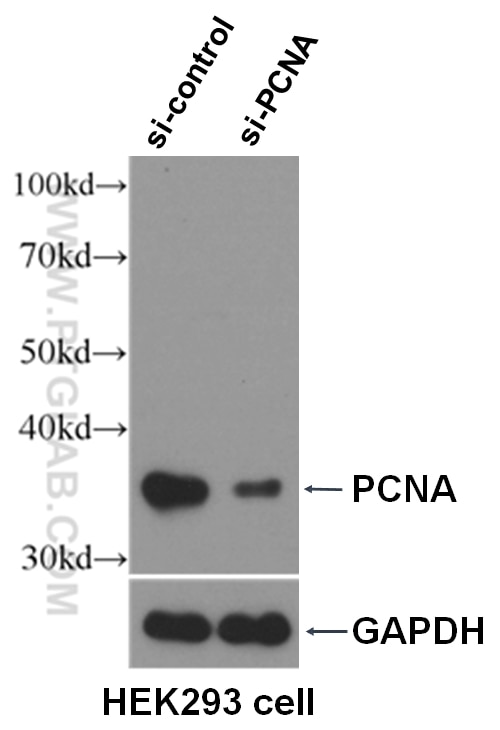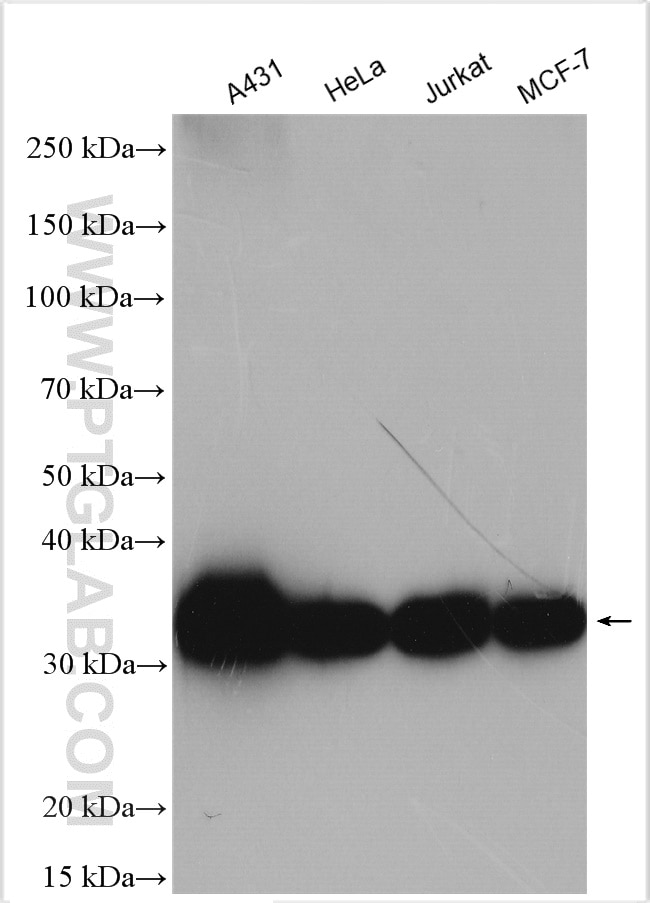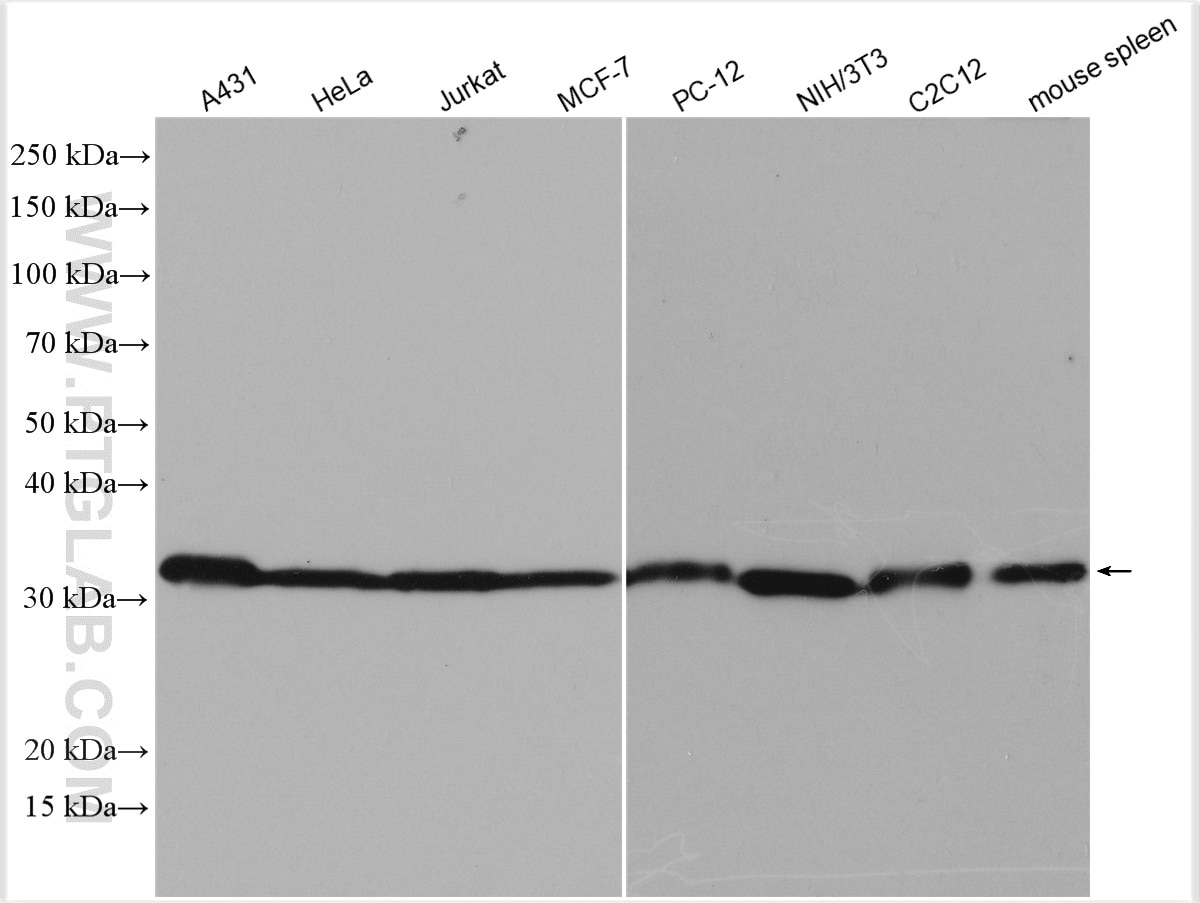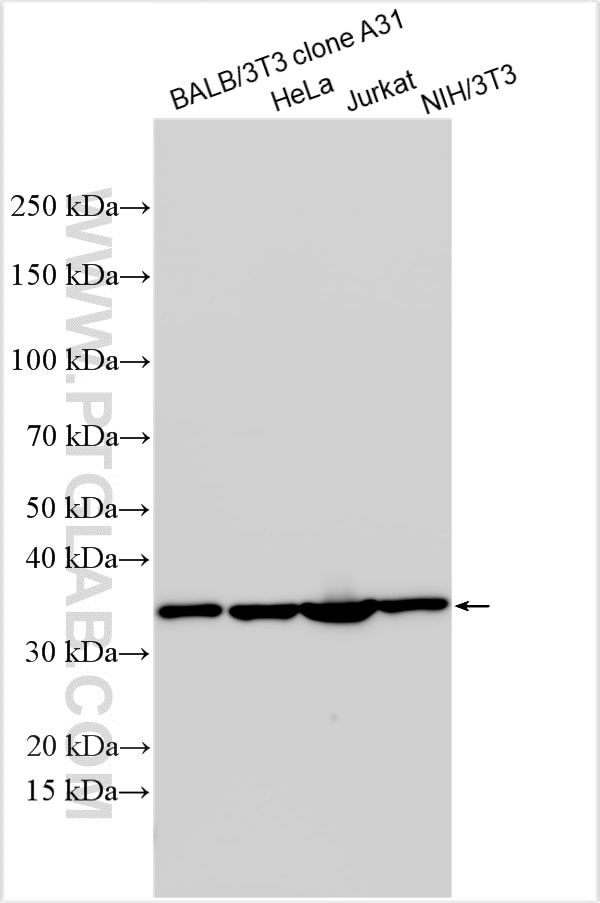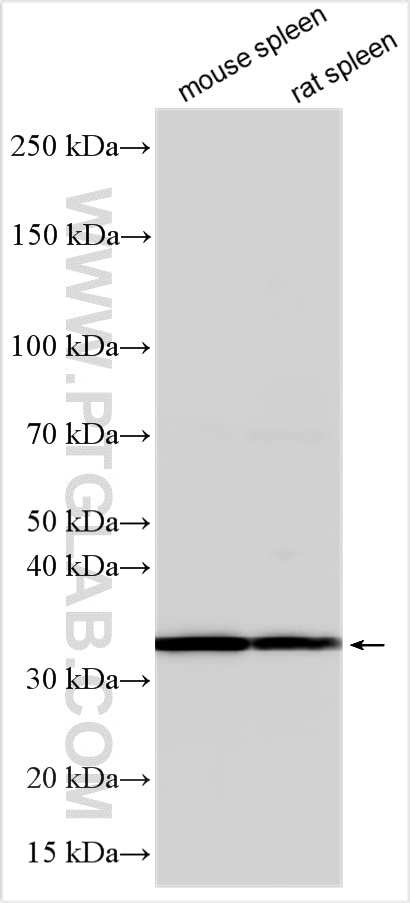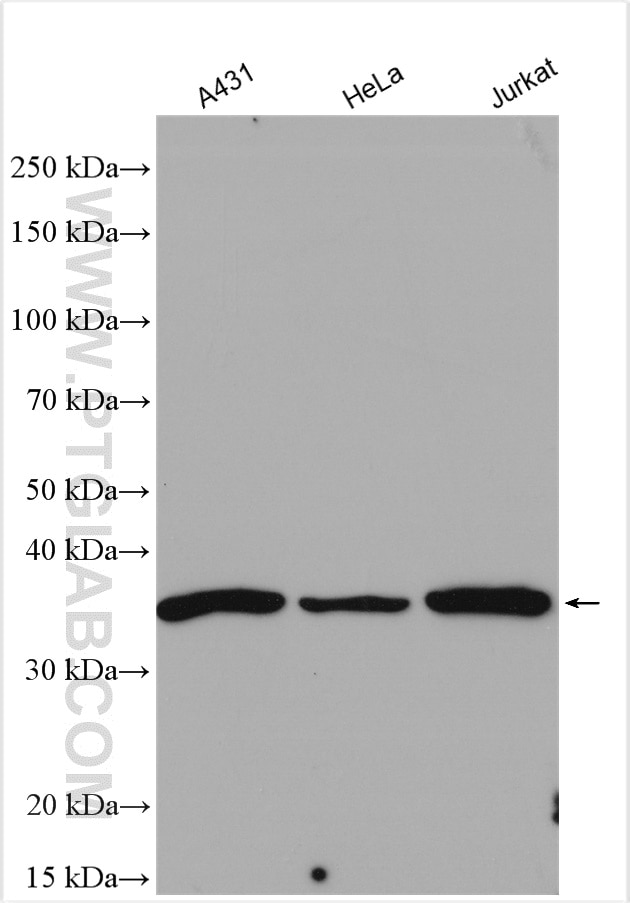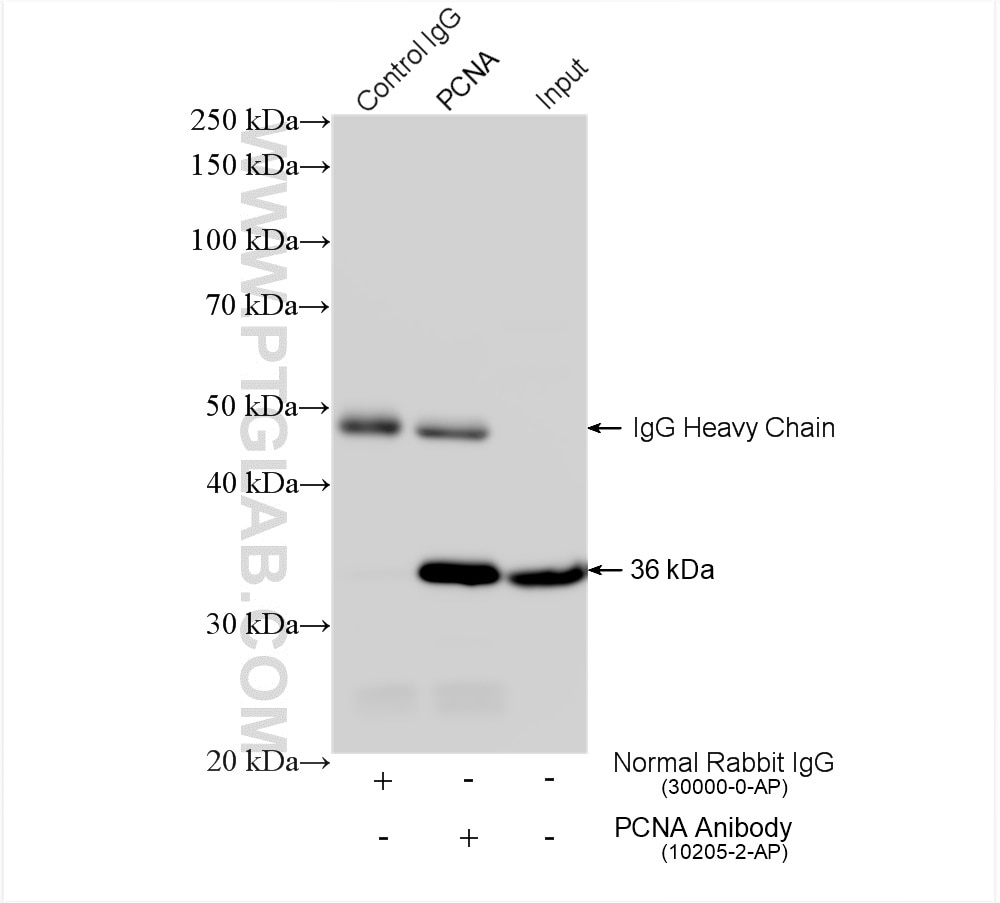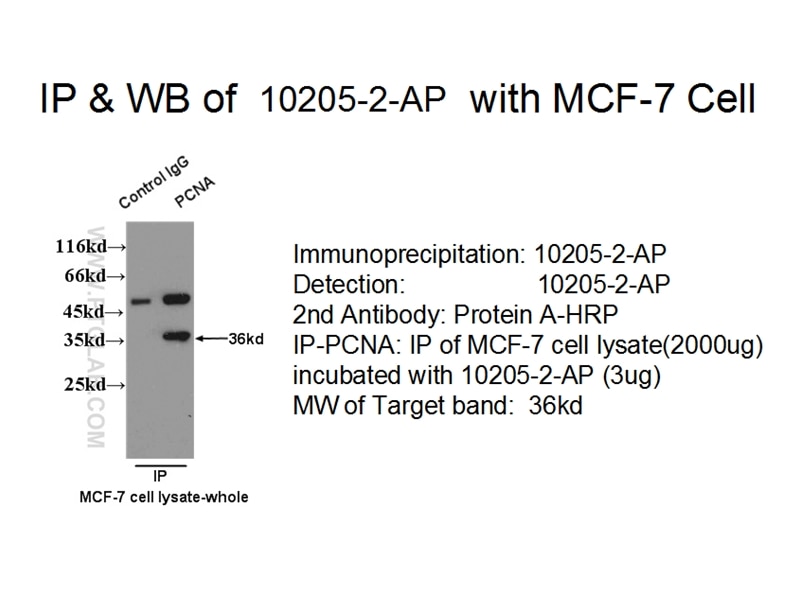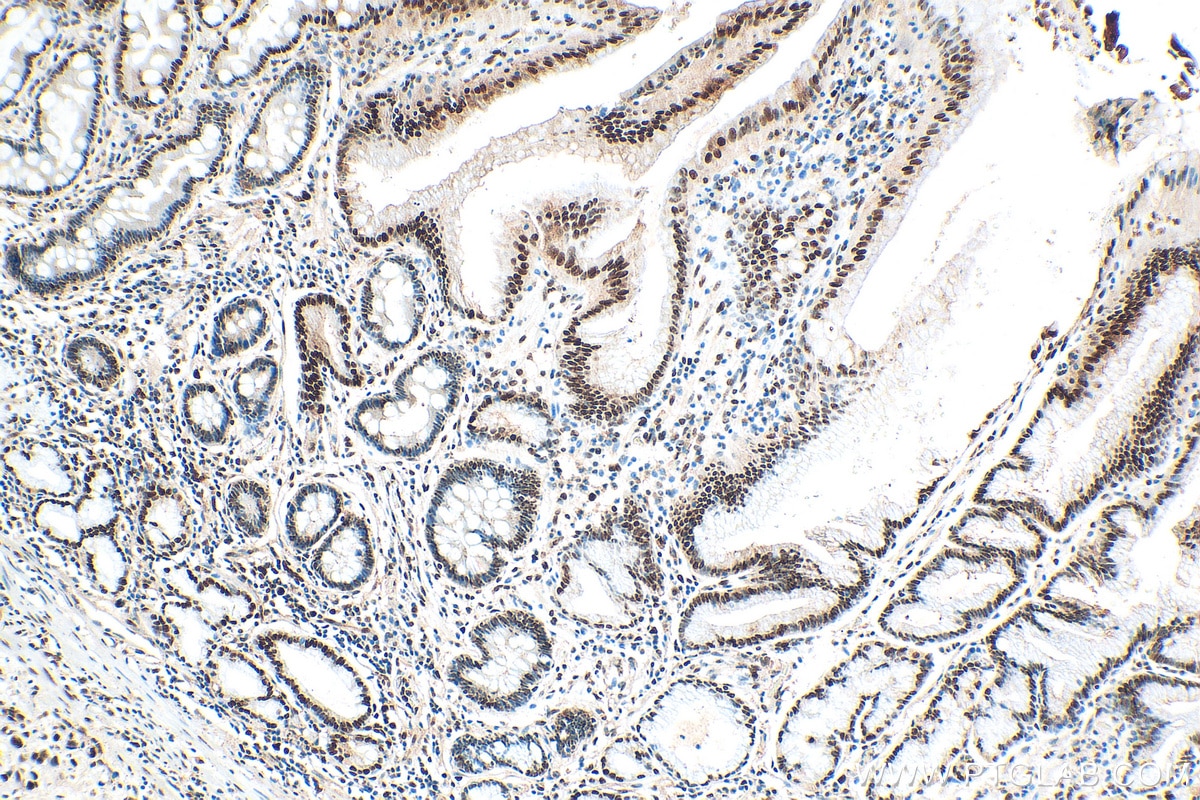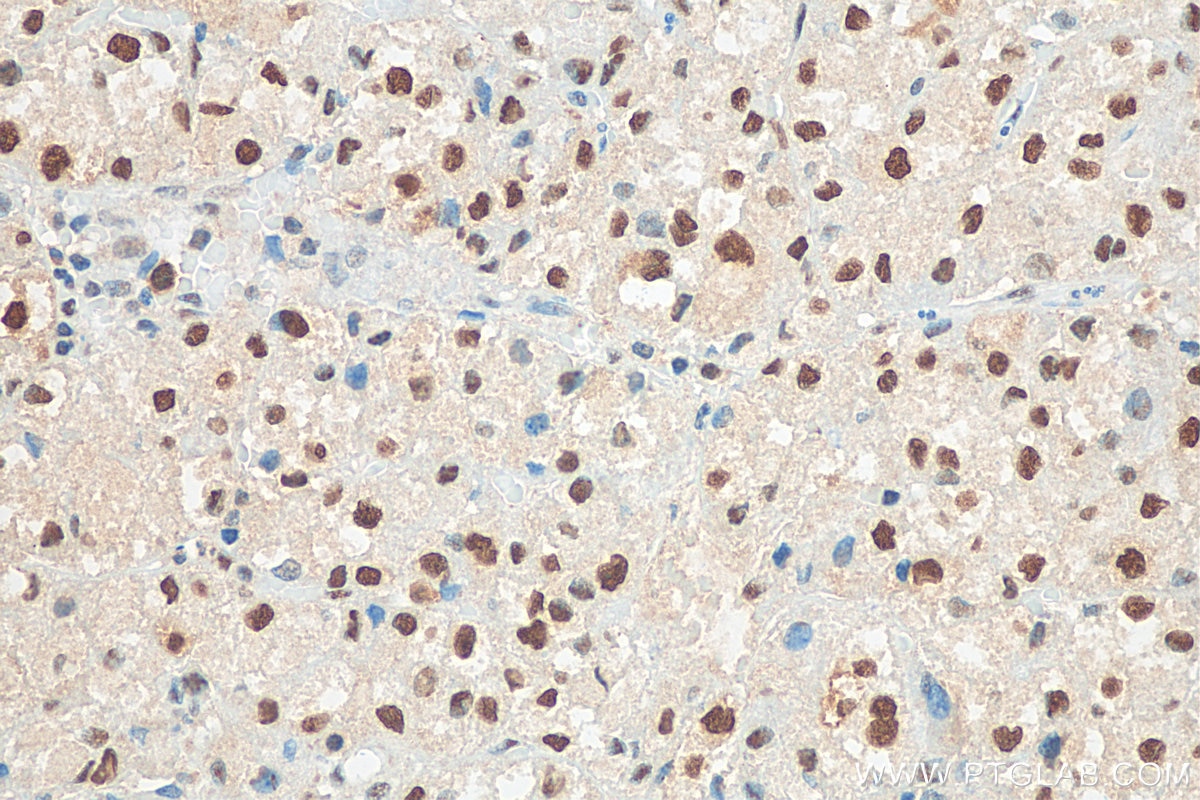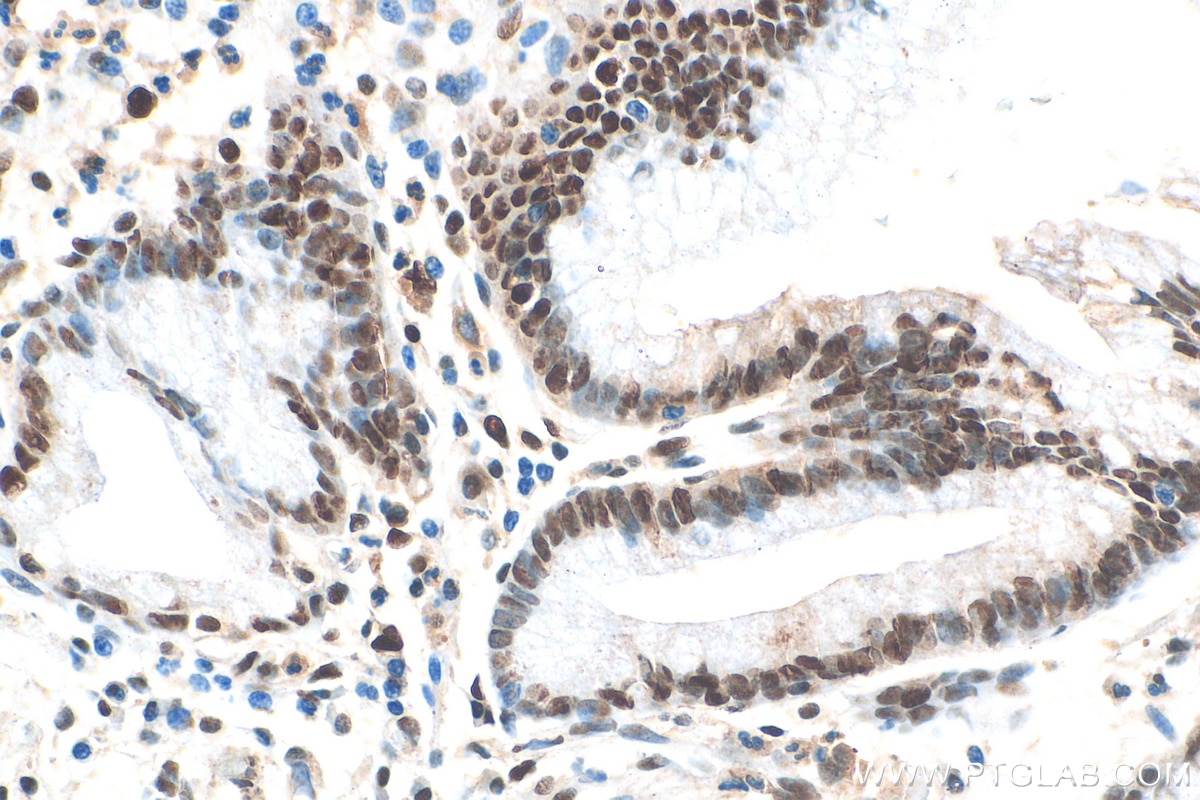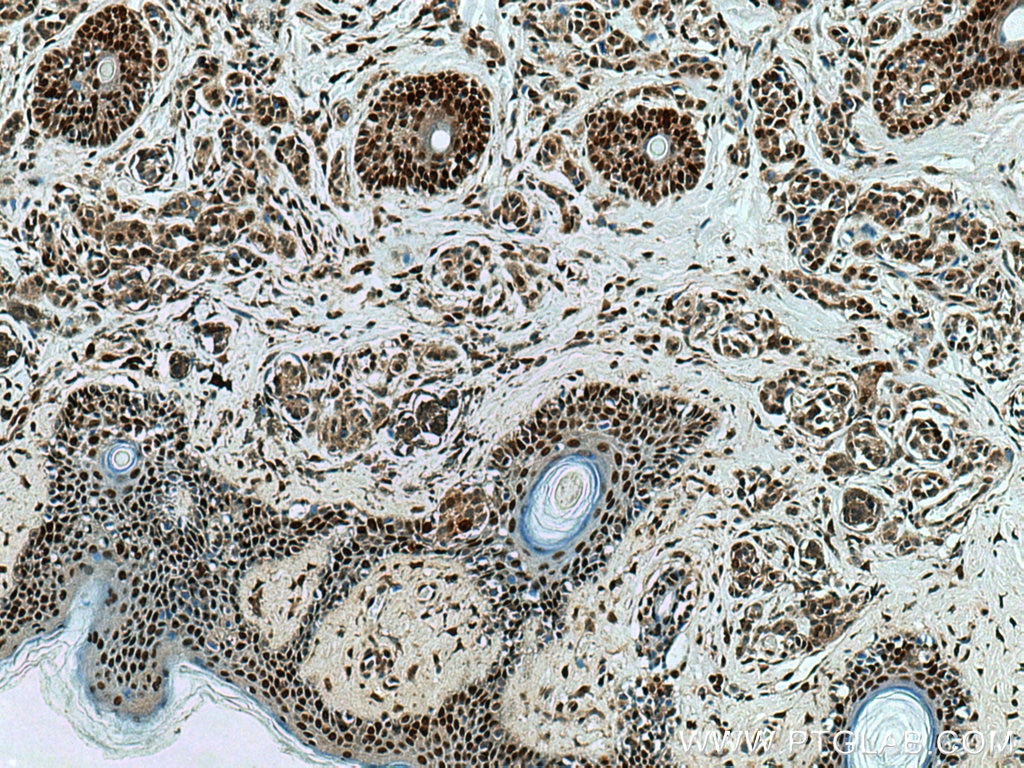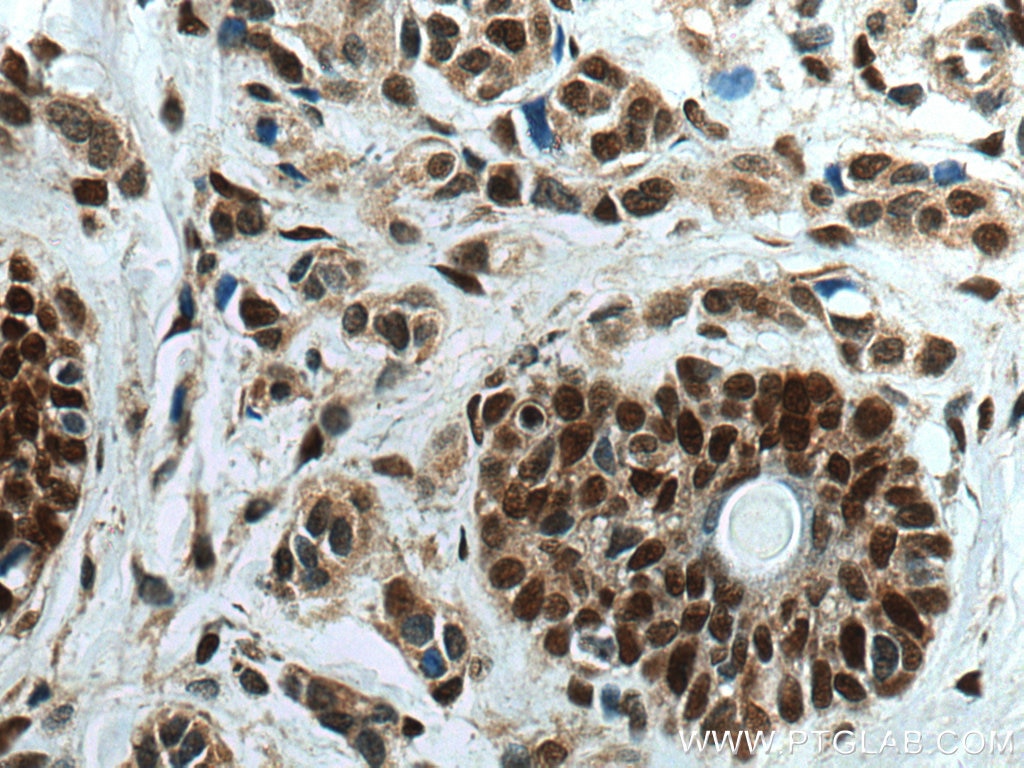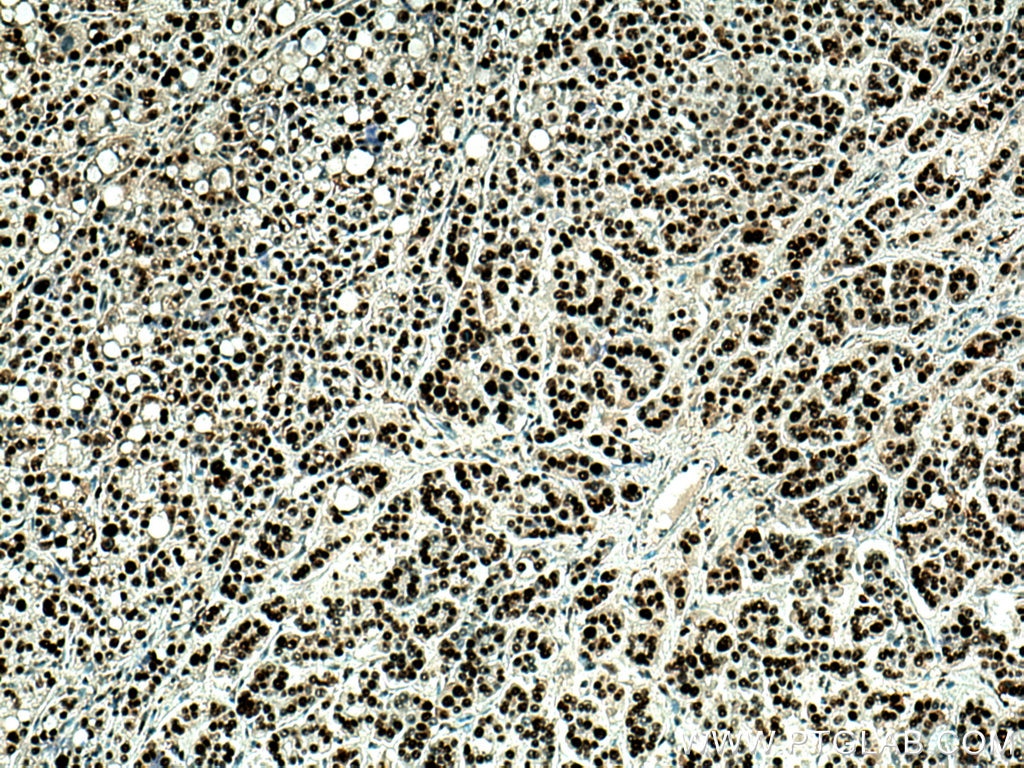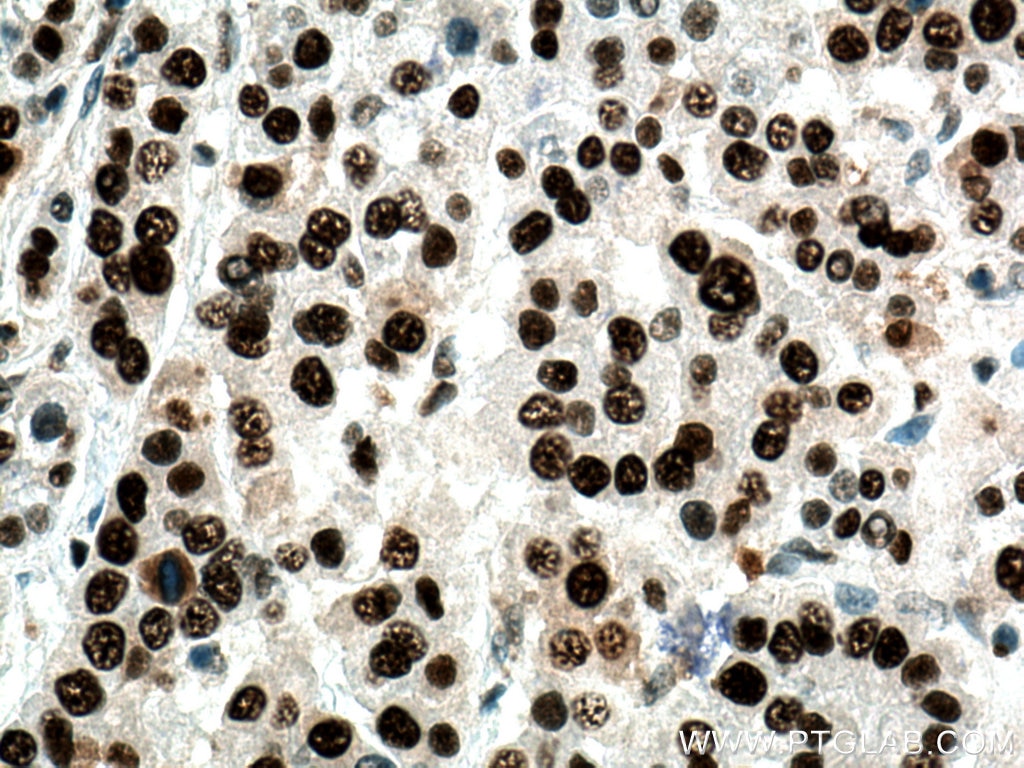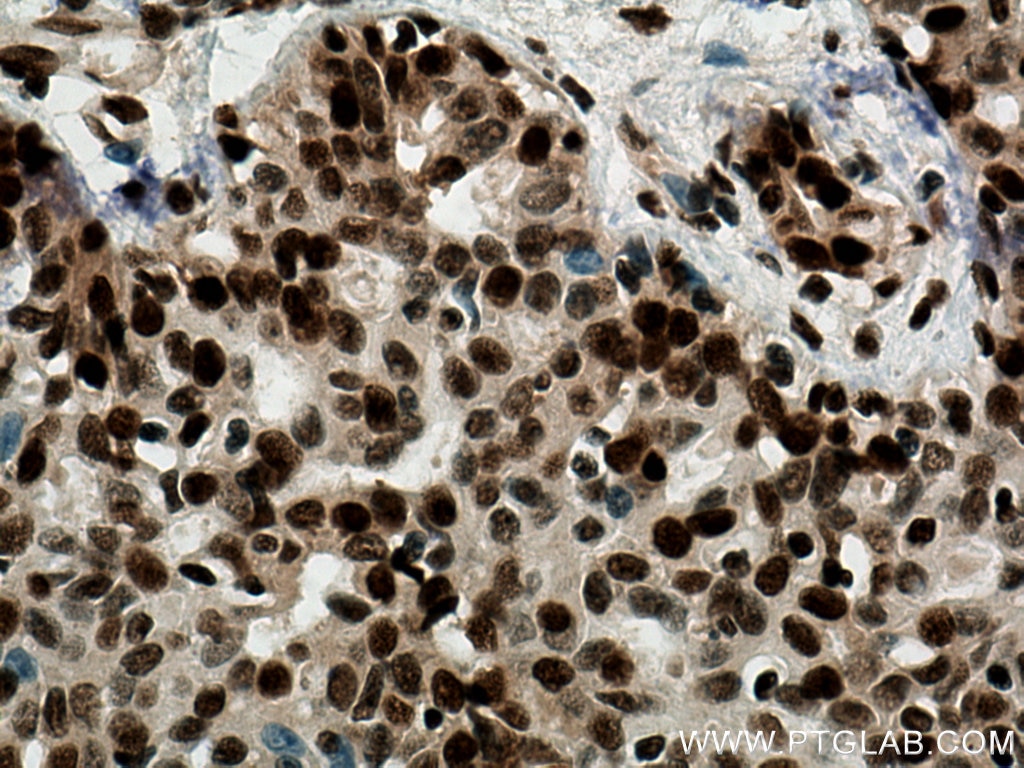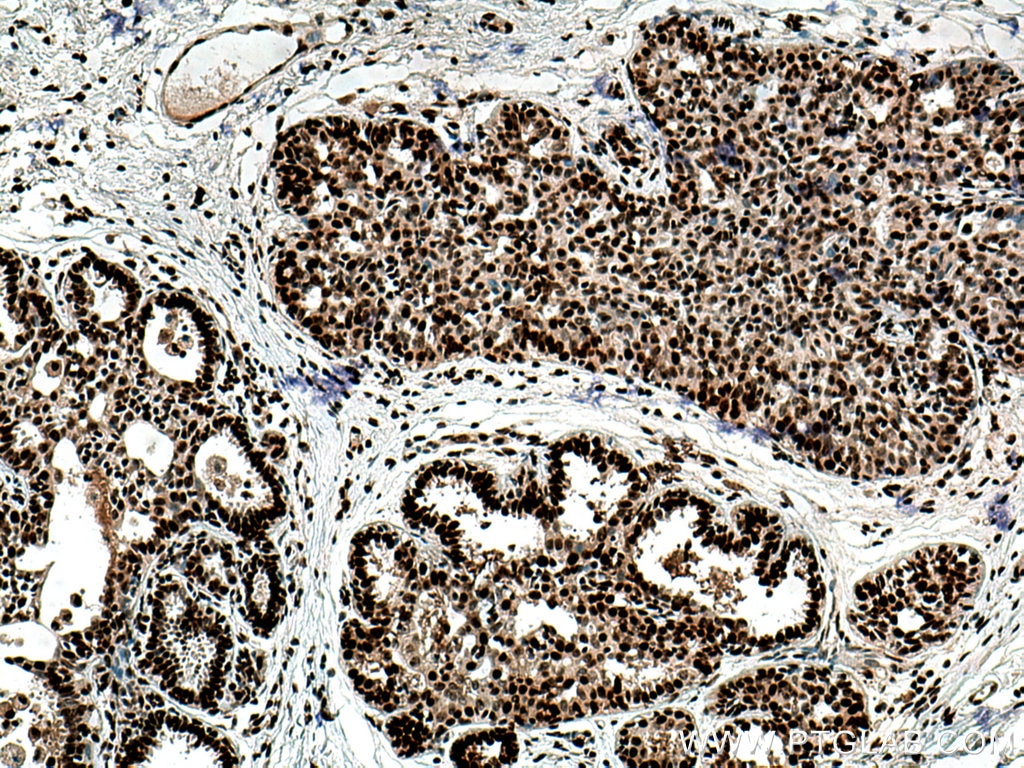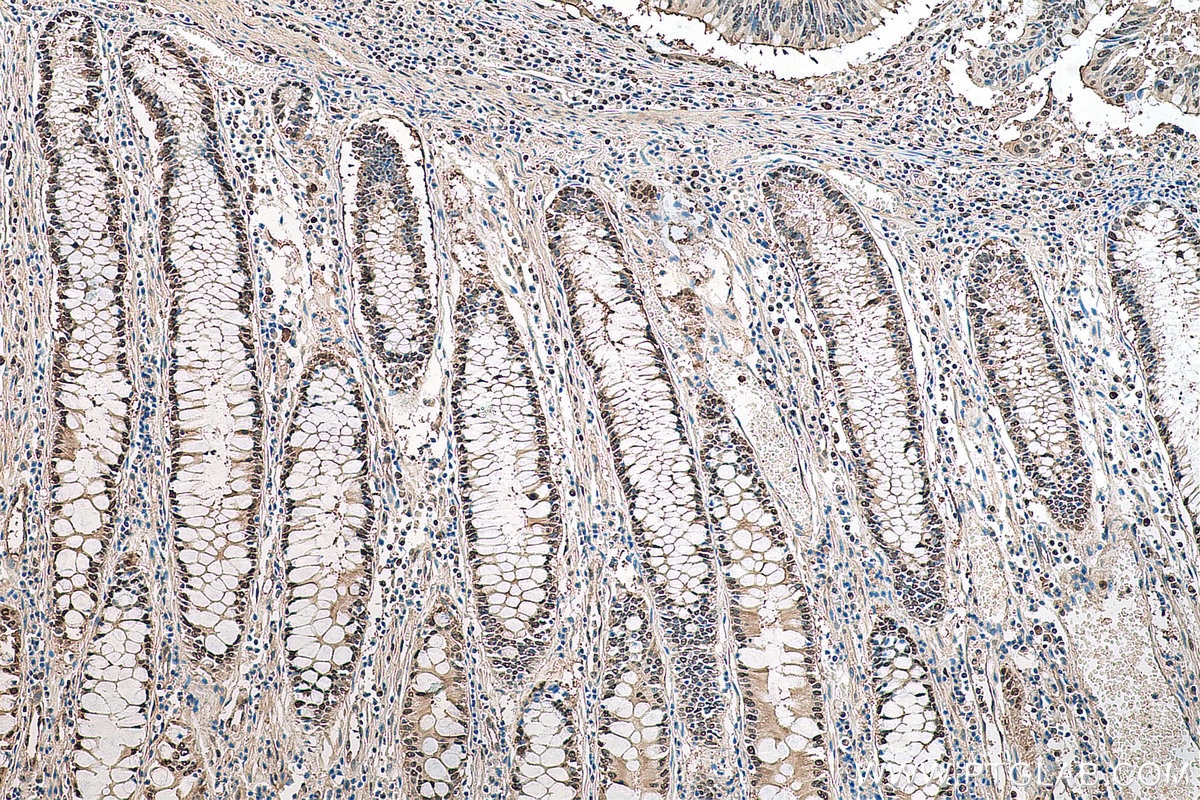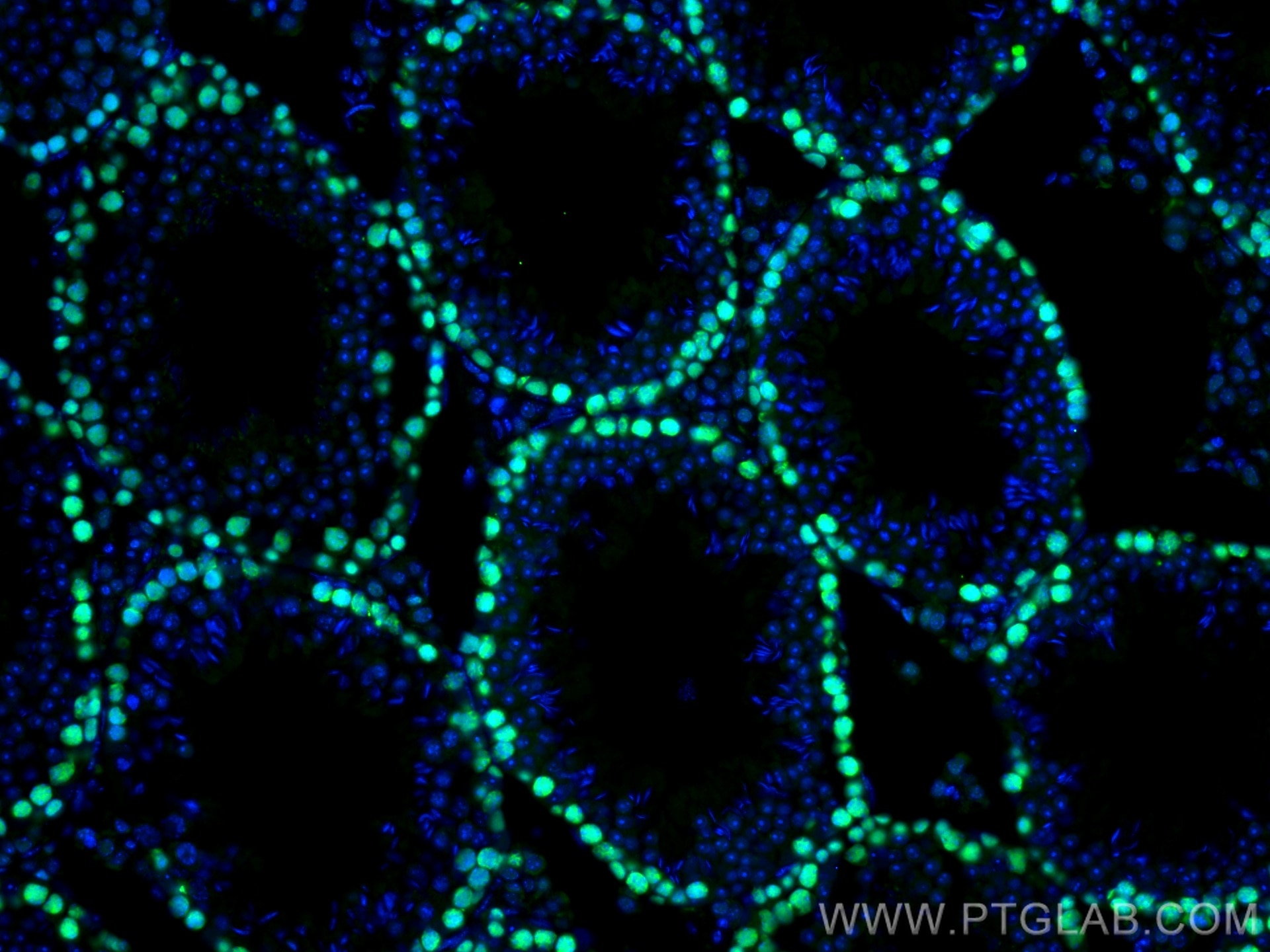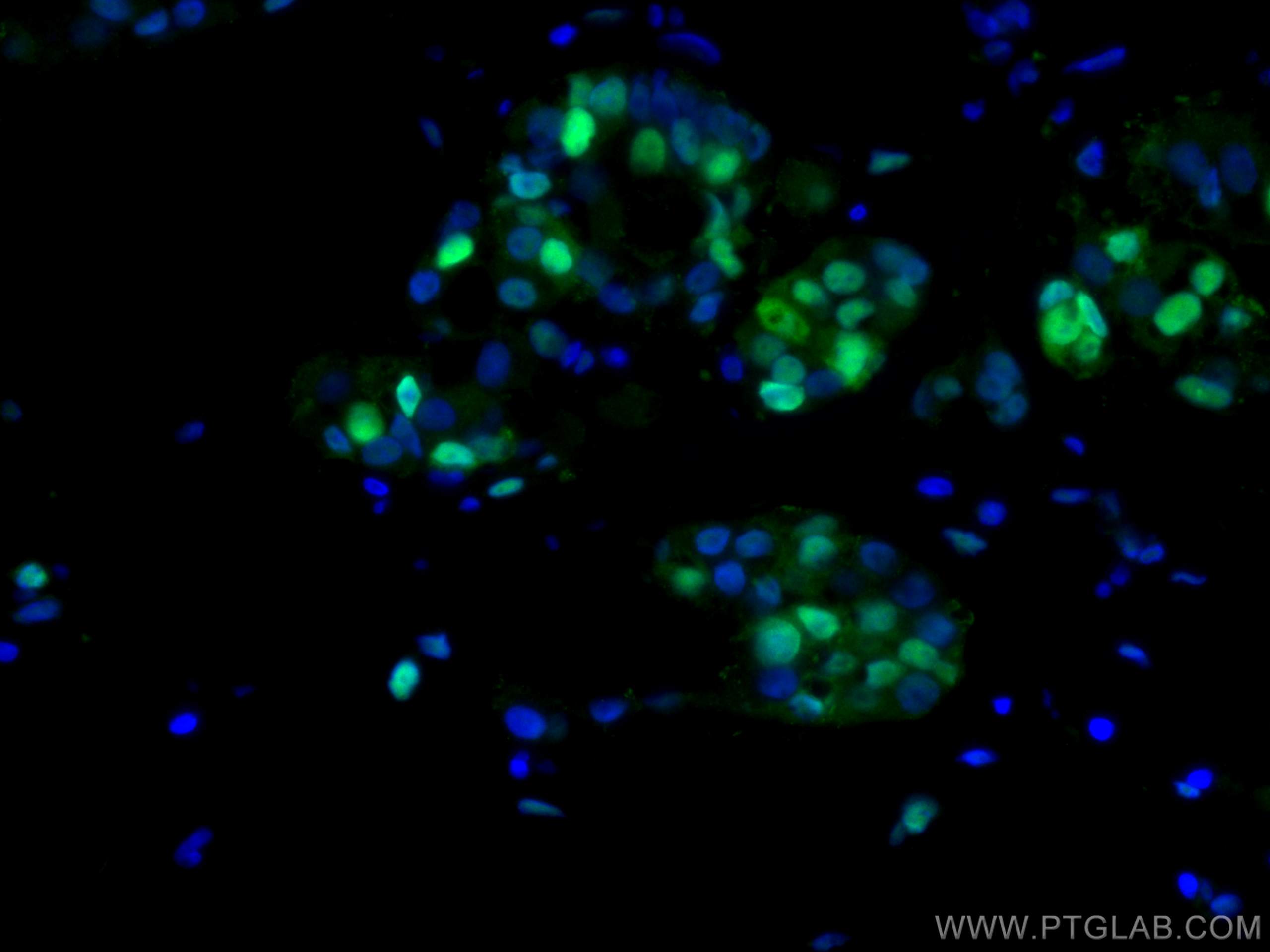- Featured Product
- KD/KO Validated
PCNA Polyklonaler Antikörper
PCNA Polyklonal Antikörper für WB, IHC, IF-P, IP, ELISA
Wirt / Isotyp
Kaninchen / IgG
Getestete Reaktivität
human, Maus, Ratte und mehr (5)
Anwendung
WB, IHC, IF-P, IP, CoIP, ELISA, Cell treatment
Konjugation
Unkonjugiert
Kat-Nr. : 10205-2-AP
Synonyme
"PCNA Antibodies" Comparison
View side-by-side comparison of PCNA antibodies from other vendors to find the one that best suits your research needs.
Geprüfte Anwendungen
| Erfolgreiche Detektion in WB | A431-Zellen, C2C12-Zellen, HeLa-Zellen, Jurkat-Zellen, MCF-7-Zellen, Mausmilzgewebe, NIH/3T3-Zellen, PC-12-Zellen, Rattenmilzgewebe |
| Erfolgreiche IP | MCF-7-Zellen |
| Erfolgreiche Detektion in IHC | humanes Magenkrebsgewebe, humanes Mammakarzinomgewebe, humanes Kolonkarzinomgewebe, humanes Leberkarzinomgewebe, humanes malignes Melanomgewebe Hinweis: Antigendemaskierung mit TE-Puffer pH 9,0 empfohlen. (*) Wahlweise kann die Antigendemaskierung auch mit Citratpuffer pH 6,0 erfolgen. |
| Erfolgreiche Detektion in IF-P | Maushodengewebe, humanes Mammakarzinomgewebe |
Empfohlene Verdünnung
| Anwendung | Verdünnung |
|---|---|
| Western Blot (WB) | WB : 1:5000-1:50000 |
| Immunpräzipitation (IP) | IP : 0.5-4.0 ug for 1.0-3.0 mg of total protein lysate |
| Immunhistochemie (IHC) | IHC : 1:1500-1:6000 |
| Immunfluoreszenz (IF)-P | IF-P : 1:50-1:500 |
| It is recommended that this reagent should be titrated in each testing system to obtain optimal results. | |
| Sample-dependent, check data in validation data gallery | |
Veröffentlichte Anwendungen
| KD/KO | See 4 publications below |
| WB | See 812 publications below |
| IHC | See 283 publications below |
| IF | See 103 publications below |
| IP | See 1 publications below |
| CoIP | See 1 publications below |
Produktinformation
10205-2-AP bindet in WB, IHC, IF-P, IP, CoIP, ELISA, Cell treatment PCNA und zeigt Reaktivität mit human, Maus, Ratten
| Getestete Reaktivität | human, Maus, Ratte |
| In Publikationen genannte Reaktivität | human, Fisch, Huhn, Kaninchen, Maus, Ratte, Ziege, Medaka-Embryos |
| Wirt / Isotyp | Kaninchen / IgG |
| Klonalität | Polyklonal |
| Typ | Antikörper |
| Immunogen | PCNA fusion protein Ag0277 |
| Vollständiger Name | proliferating cell nuclear antigen |
| Berechnetes Molekulargewicht | 29 kDa/31 kDa |
| Beobachtetes Molekulargewicht | 36-38 kDa |
| GenBank-Zugangsnummer | BC000491 |
| Gene symbol | PCNA |
| Gene ID (NCBI) | 5111 |
| Konjugation | Unkonjugiert |
| Form | Liquid |
| Reinigungsmethode | Antigen-Affinitätsreinigung |
| Lagerungspuffer | PBS with 0.02% sodium azide and 50% glycerol |
| Lagerungsbedingungen | Bei -20°C lagern. Nach dem Versand ein Jahr lang stabil Aliquotieren ist bei -20oC Lagerung nicht notwendig. 20ul Größen enthalten 0,1% BSA. |
Hintergrundinformationen
Proliferating Cell Nuclear Antigen, commonly known as PCNA, is a protein that acts as a processivity factor for DNA polymerase δ in eukaryotic cells. This protein is an auxiliary protein of DNA polymerase delta and is involved in the control of eukaryotic DNA replication by increasing the polymerase's processibility during elongation of the leading strand. PCNA induces a robust stimulatory effect on the 3'-5' exonuclease and 3'-phosphodiesterase, but not apurinic-apyrimidinic (AP) endonuclease, APEX2 activities. It has to be loaded onto DNA in order to be able to stimulate APEX2. PCNA protein is highly conserved during evolution; the deduced amino acid sequences of rat and human differ by only 4 of 261 amino acids. PCNA has been used as loading control for proliferating cells. This antibody is a rabbit polyclonal antibody raised against an internal region of human PCNA. The calculated molecular weight of PCNA is 29 kDa, but modified PCNA is 36kDa (PMID: 1358458).
Protokolle
| PRODUKTSPEZIFISCHE PROTOKOLLE | |
|---|---|
| WB protocol for PCNA antibody 10205-2-AP | Protokoll herunterladen |
| IHC protocol for PCNA antibody 10205-2-AP | Protokoll herunterladenl |
| IF protocol for PCNA antibody 10205-2-AP | Protokoll herunterladen |
| IP protocol for PCNA antibody 10205-2-AP | Protokoll herunterladen |
| STANDARD-PROTOKOLLE | |
|---|---|
| Klicken Sie hier, um unsere Standardprotokolle anzuzeigen |
Publikationen
| Species | Application | Title |
|---|---|---|
J Hematol Oncol METTL16 promotes liver cancer stem cell self-renewal via controlling ribosome biogenesis and mRNA translation | ||
Mil Med Res Aspartoacylase suppresses prostate cancer progression by blocking LYN activation | ||
Protein Cell NDFIP1 limits cellular TAZ accumulation via exosomal sorting to inhibit NSCLC proliferation | ||
Brain Behav Immun An enriched environment restores hepatitis B vaccination-mediated impairments in synaptic function through IFN-γ/Arginase1 signaling. | ||
Nat Commun Four-dimensional hydrogel dressing adaptable to the urethral microenvironment for scarless urethral reconstruction | ||
Nat Commun The RNA-binding protein LRPPRC promotes resistance to CDK4/6 inhibition in lung cancer |
Rezensionen
The reviews below have been submitted by verified Proteintech customers who received an incentive for providing their feedback.
FH Mi (Verified Customer) (06-25-2023) | It works well in human brown adipocyte cells.
|
FH Emma (Verified Customer) (11-29-2021) | Nice antibody which worked well on PC3 cells fixed with 4% PFA. Antibody used at 1:50
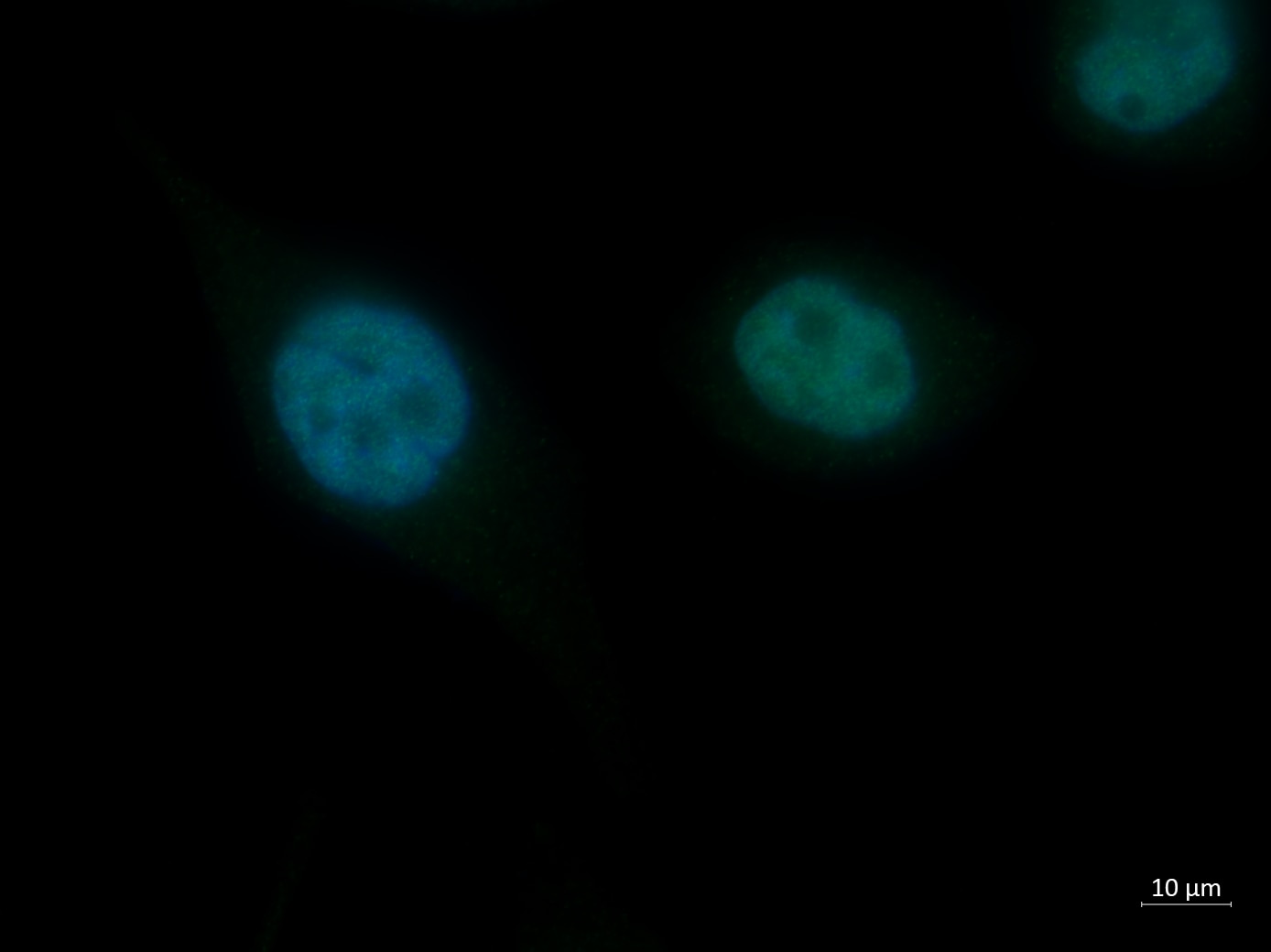 |
